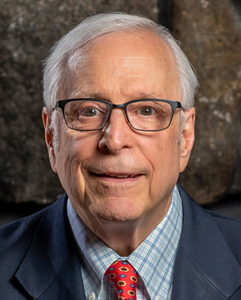Leaders’ essential habits to be effective are ingrained in good leadership practices and leadership development.
While it’s true that some people are born to lead and simply have the skills required for success, it’s far more likely that the people you regard to be excellent leaders have grown into them over time by developing the necessary skills.
Much of this skill mastery entails forming strong leadership habits from the start, but it also entails recognizing ineffective patterns and learning how to change them (or mitigate them).
What new leaders lack is a tried-and-true preference for doing things or handling circumstances in a certain way. Their routines haven’t yet become second nature to them. As a result, they may have more poor habits to break compared to leaders who have been in the same organization for a long time.
Although the adage “you can’t teach an old dog new tricks” may spring to mind, keep in mind that you can absolutely train an experienced individual to establish effective leadership habits — if you put into place a framework that encourages behavioral change.
Breaking Old Leadership Habits – And Forming New Ones
People become accustomed to performing the same tasks in the same manner. Regularly repeated activities are taught through reinforcement and repetition, which is how habits are formed. These habits become automatic beyond a certain point and require little or no thought. Your brain likes habits because they are efficient and help you to execute activities quickly and efficiently without wasting energy or brainpower.
On the one hand, it enables our brains to accomplish more every day. This type of “homeostasis” is widely recognized in the corporate world as the desire to maintain the status quo, strengthen the present culture, and so forth. It’s not conducive to bringing about change and setting the way for a new, different future.
Good leadership habits include the following key abilities that leaders need to be effective:
- Developing an ever-growing mindset
- Establishing meaningful relationships
- Posing questions – being curious of the path forward
Listening to team members’ difficulties and responding with empathy is a key example of excellent leadership behavior that fits under most, if not all, of these criteria.
Emotional intelligence itself is a term that refers to the capacity to listen actively and honestly. Specifically, an empathetic leader understands how to listen actively and sincerely, as well as ask questions, when necessary, to better comprehend his or her team’s sentiments and frustrations. Empathy can help to diffuse tension since it helps to establish mutual understanding. As a result, establishing effective listening skills and knowing how to have successful conversations can help leaders become more compassionate.
Leadership Development – Change Doesn’t Come Easy
It’s common for people to try a small bit of change, then give up when they don’t notice any immediate results. In other words, you’ve started to form some new positive habits, but you’ve given up because you’re not seeing any effects.
We expect our efforts to yield immediate and linear outcomes, but the fact is that they take longer than we anticipate. However, just because our efforts aren’t realized as quickly as we’d want doesn’t negate the work we’ve already done.
As follows, the moral of the narrative is to be patient, put in the effort, and excellent outcomes will eventually arrive. Don’t give up! It could take months or even years, depending on your end goal. All great accomplishments have humble beginnings.
Focus Not on What You Want to Do, But on Who You Are
“I want to be a leader, and if I take this class or get this job, I’ll be a leader,” should never be a thought that crosses your mind. The focus is on the outcome and method rather than the motivations behind such efforts. It’s one thing to say, “I’m this type of person,” and another to say, “I will be this type of person.”
This is why your leadership development is so important for success.
Once a habit has become ingrained in your nature, you will fight tooth and nail to keep it. Giving up may not be conceivable or even a viable option. Instead, redirect your efforts. Focus on who you want to be as a leader rather than just what you want to do with your skills. You’ll find that changing your perspective will help you stick to the (positive) habits that will help you achieve your dreams.
Know the Difference Between Taking Action and Being in Motion During Your Leadership Development
Simply by being in motion, we can feel like we’re making progress while avoiding failure. Motion can be effective at times, but it will never get you in shape on its own. No matter how many times you go to the personal trainer, it will never get you in shape. The only way to get the results you’re looking for is to work out and measure your progress.
Assume you wish to improve your coaching skills for your team. Learning how to be a great coach and taking courses are both important. However, if you want to be a truly effective coach and leader, you’ll need to get right in and start having these crucial conversations with your team. It’s not necessary to be perfect right away but maintaining your accountability and commitment to those looking up to you is a start.
You don’t plan every detail of a new habit beforehand. All you need to do now is practice.
Why wait? If you are curious about habit formation and how it will make you a great leader, then we should talk. Becoming a confident leader will require external support.
I’ve been building executives to achieve peak performance for years. Contact me today at pholberton@holberton.com or call 781-608-1966 – Direct/Text to find out how you can become the leader to which you aspire.



